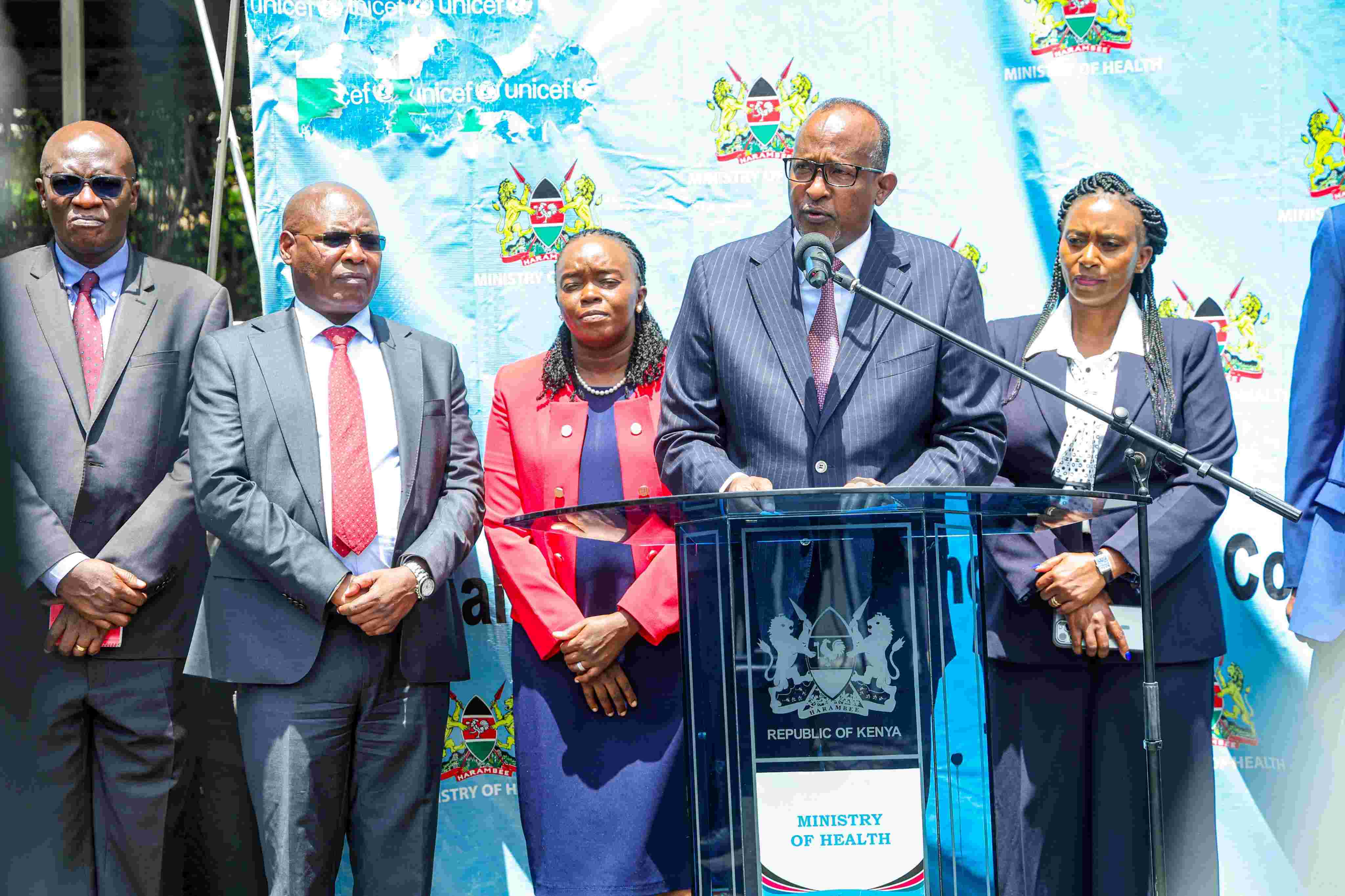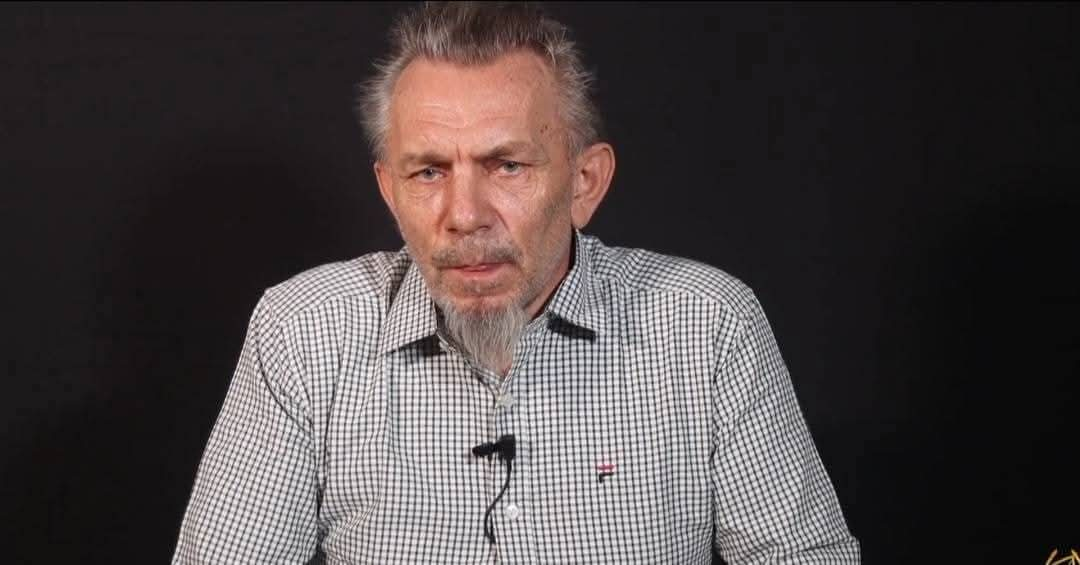Health CS Duale vows to ensure SHA settles hospital claims by the 14th of each month

According to the Ministry, SHA has already settled claims amounting to Sh24 billion, with an additional Sh2.1 billion paid under the primary health care fund.
Health Cabinet Secretary Aden Duale has pledged that, moving forward, the Social Health Authority (SHA) will settle hospital claims by the 14th day of each month.
Speaking during the official handover ceremony at Afya House following his deployment to the Ministry of Health, Duale committed to addressing human resource challenges within the sector and working with stakeholders to deliver long-lasting solutions.
More To Read
- Duale accuses politicians of hijacking clinical officers’ protests, says most protesters are not clinicians
- KNCHR says Kenyans still locked out of healthcare despite Sh138 billion SHA boost
- MPs ditch SHA, the public health scheme they once praised, and opt for private cover
- TSC confirms shift to SHA cover for teachers from December 1
- TSC sued over teachers’ migration from MINET insurance to SHA
- Ruto announces increase in cancer treatment cover to Sh800,000 under SHA from December 1, 2025
“Going forward, SHA shall settle hospital claims by the 14th day of each month. We are committed to improving our healthcare systems and ensuring efficiency across the board,” Duale said.
According to the Ministry, SHA has already settled claims amounting to Sh24 billion, with an additional Sh2.1 billion paid under the primary health care fund. It noted that this has facilitated expanded access to social health insurance, covering 13 million additional Kenyans.
“As of March 2025, Sh25.4 billion has been paid to contracted health facilities by SHA. Of this, Sh22.2 billion was from the Social Health Insurance Fund and Sh3.2 billion from the Primary Healthcare Fund,” Duale said.
He also expressed his gratitude to the previous leadership of the Ministry, particularly Dr. Deborah Barasa, for their contribution to the programme’s early success. He emphasised the importance of affordable, quality healthcare for all Kenyans, stressing that this remains a constitutional right and a moral responsibility.
He also announced a significant development in the area of healthcare financing, with 20.8 million Kenyans now registered with the SHA, along with 5.7 million of their dependents.
Duale said the top five counties with the highest registration rates include Mombasa, Bomet, Nyeri, Elgeyo Marakwet and Kirinyaga.
In terms of human resources for health, Duale outlined several initiatives to enhance the healthcare workforce.
He said the Ministry has already provided over 100,000 kits, medicines, and supplies to 107,831 Community Health Promoters (CHPs), as well as smartphones for improved service delivery through the Electronic Community Health Information System (e-CHIS).
Duale also shared updates on health products and technologies, including reforms at the Kenya Medical Supplies Authority (KEMSA), which are aimed at improving the availability of health commodities. However, he noted that KEMSA currently faces stockouts due to financial constraints.
“The order fill rate at KEMSA is at 43 per cent, a challenge we are addressing through strategic reforms and recapitalisation,” Duale said.
“We are committed to ensuring that KEMSA can meet the demands of health facilities across the country.”
Barasa's tenure
Outgoing Health Cabinet Secretary Deborah Barasa expressed gratitude for the opportunity to serve and highlighted the strides made during her tenure.
She thanked President William Ruto for entrusting her with the responsibility to lead the Ministry of Health and acknowledged the collective efforts of the Ministry’s team in advancing the healthcare agenda.
Barasa said several laws, including the Social Health Insurance Act 2023 and the Primary Health Act 2023, have supported the transition from the National Health Insurance Fund (NHIF) to the Social Health Authority (SHA).
She noted that the SHA membership has increased by 163 per cent, now covering 21 million Kenyans, up from 8 million under the previous NHIF system.
Barasa also highlighted other achievements, including the allocation of Sh31.6 billion to the SHA, the expansion of access to healthcare for 13 million additional Kenyans, and the launch of new health packages that enhance cancer treatment and ICU payment limits.
“Our digital health reach has also grown, with over 107,000 community health promoters trained and equipped with essential medical kits,” Barasa added.
“We have significantly boosted local manufacturing, contributing more than 60% of medical products to KEMSA.”
Barasa emphasised the importance of strategic infrastructure investments, citing the ongoing construction of 19 Level-4 hospitals across the country, along with cancer centers in Mombasa, Nakuru, Garissa and Kisii.
“We have been vigilant in managing disease outbreaks like M-pox, cholera, and Ebola, ensuring that we keep Kenyans safe from potential threats,” Barasa said.
As she handed over leadership to Duale, Barasa, who will now take over the Environment Ministry, expressed confidence in the future of Kenya’s healthcare system.
“The future can only get better,” she said.
She also expressed her deep gratitude to the Ministry’s dedicated team and healthcare workers for their hard work, dedication and unwavering commitment to improving the health of all Kenyans.
Top Stories Today















































